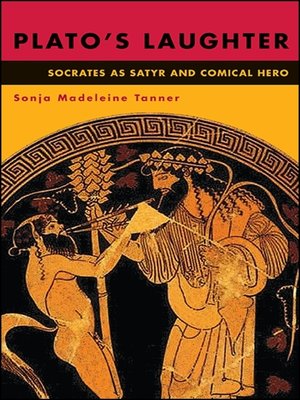Plato's Laughter
ebook ∣ Socrates as Satyr and Comical Hero · SUNY Series in Ancient Greek Philosophy
By Sonja Madeleine Tanner

Sign up to save your library
With an OverDrive account, you can save your favorite libraries for at-a-glance information about availability. Find out more about OverDrive accounts.
Find this title in Libby, the library reading app by OverDrive.



Search for a digital library with this title
Title found at these libraries:
| Loading... |
Plato was described as a boor and it was said that he never laughed out loud. Yet his dialogues abound with puns, jokes, and humor. Sonja Madeleine Tanner argues that in Plato's dialogues Socrates plays a comical hero who draws heavily from the tradition of comedy in ancient Greece, but also reforms laughter to be applicable to all persons and truly shaming to none. Socrates introduces a form of self-reflective laughter that encourages, rather than stifles, philosophical inquiry. Laughter in the dialogues—both explicit and implied—suggests a view of human nature as incongruous with ourselves, simultaneously falling short of, and superseding, our own capacities. What emerges is a picture of human nature that bears a striking resemblance to Socrates' own, laughable depiction, one inspired by Dionysus, but one that remains ultimately intractable. The book analyzes specific instances of laughter and the comical from the Apology, Laches, Charmides, Cratylus, Euthydemus, and the Symposium to support this, and to further elucidate the philosophical consequences of recognizing Plato's laughter.






